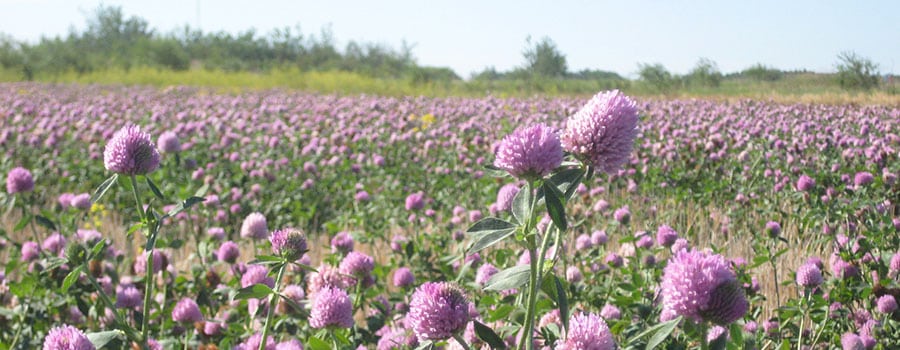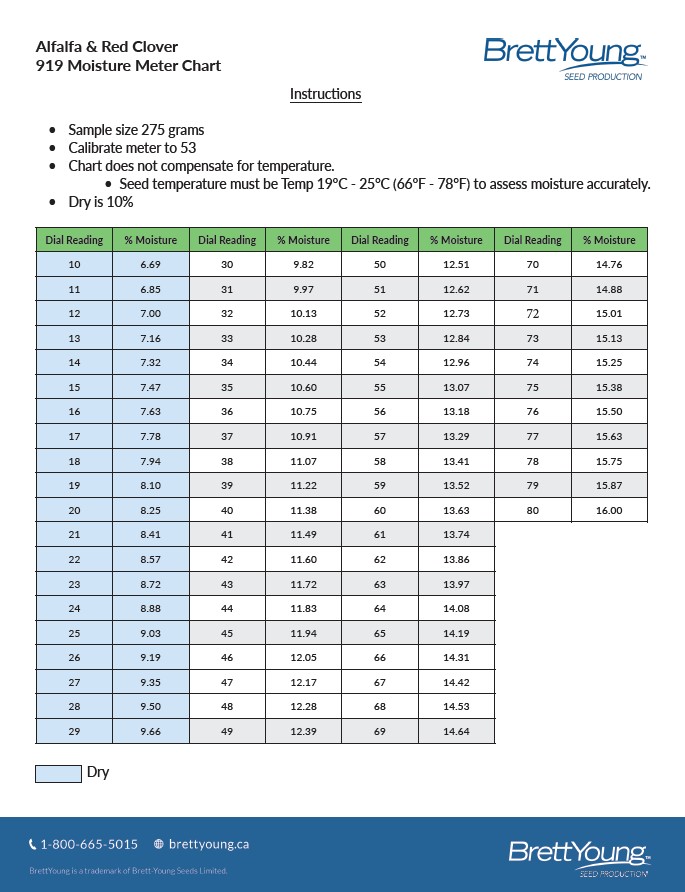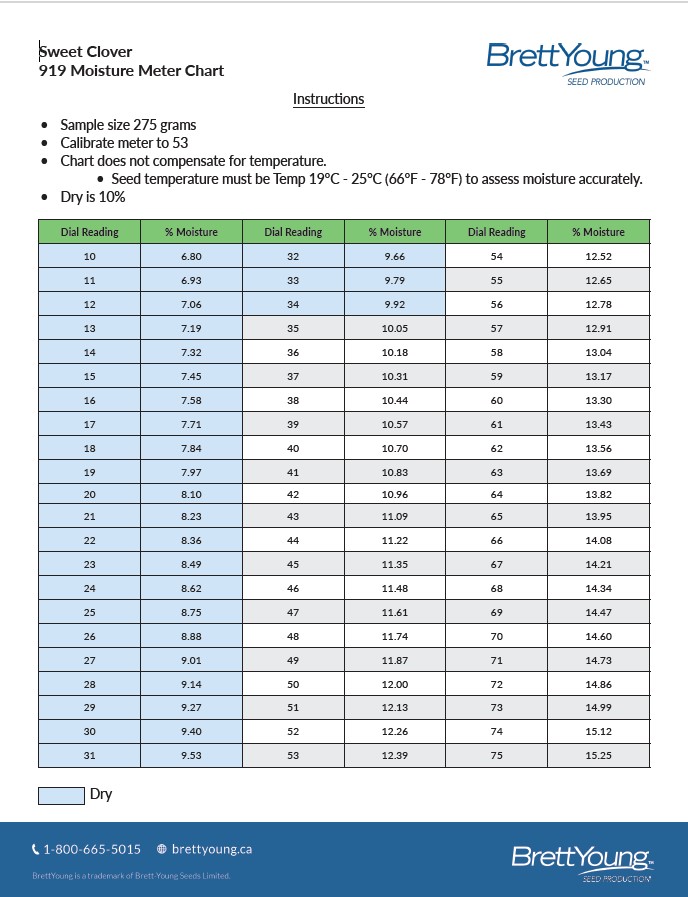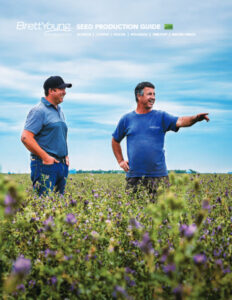- Home
- /
- Seed Production
- /
- Clover

Clover species are short-lived perennial legumes that are produced in all parts of the prairies. They are used to grow good quality forage in both domestic and international livestock programs. As a legume, clover is used in green manure applications to help build nitrogen levels in the soil. The main species of clover grown for seed in Western Canada are red, sweet and alsike.
Field Selection
Clover should be established with a nurse crop such as wheat, flax or oats. Canola is not recommended as a nurse crop as volunteer seeds may germinate in the year of production causing concern with export regulations. Clover yields best in well drained soils. When selecting fields it is important to review the herbicide history as chemical residues can affect germination. Select a field that is clean and free of perennial weeds such as Canada thistle.
Weed Control
Herbicides are available to control broadleaf and grassy weeds. However, there are few chemical choices available. Once established, clover offers significant weed competition.
Seeding
Clover seed must be inoculated with the proper rhizobacteria. Conventional seeding equipment can be used. Clover must be seeded into a moist, firm seedbed. Recommended seeding rates range from 1 – 5 lbs/acre.
Pollination
Clover must be cross pollinated to produce seed. Consistent yields are obtained by introducing colonies of honeybees to the field. Native pollinators such as bumblebees also aid in seed production.
Harvesting
Clover can be either swathed or desiccated and straight combined. Seed can shatter easily, so proper harvest timing is critical. Seed can safely be stored at 11% moisture.
Seed Yield
Red clover yields range from 100 – 500 lbs/acre with a five-year average of 275 lbs/acre. Alsike clover yields range from 200 – 600 lbs/acre with a five-year average of 400 lbs/acre. Sweet clover yields range from 100 – 500 lbs/acre with a five-year average of 300 lbs/acre.
| Features | Details |
|---|---|
| Crop Type | Legume |
| Revenue | Moderate |
| Rotation | Short |
| Moisture Tolerance | Low |
| Harvesting | Late |
Moisture Charts
SEED PRODUCTION GUIDE
CONTACT A SEED PRODUCTION SPECIALIST

From scouting and selection of production fields, fertility programs, pest management and growth regulator recommendations to swathing, harvest timing and cover crop management, a dedicated Seed Production Specialist is with you every step of the way to help maximize returns.



